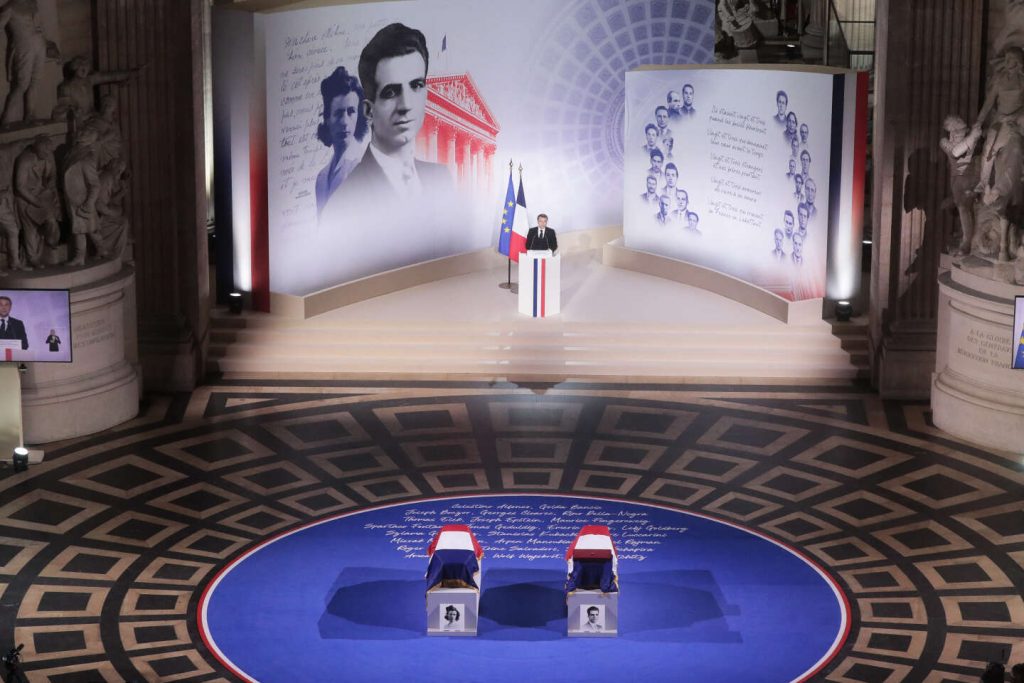Emmanuel Macron recently honored Missak and Mélinée Manouchian by bringing them into the Pantheon in Paris on February 21, 2024. After commemorating the 80th anniversary of World War II, which focused on “Resilience as a Form of Resistance,” including tributes to Jean Moulin in 2023, Macron is now moving into the next phase of remembrance. He will be highlighting “Liberation as the rebirth of the country,” with upcoming events paying tribute to the maquisards of the plateau des Glieres in Haute-Savoie and the children deported from Izieu, among others. This is just the beginning of a series of commemorations that will fill Macron’s schedule for the foreseeable future.
These commemorations will continue with events honoring resistance fighters from various regions such as the Vercors and Marseille, leading up to the D-Day anniversary in Normandy, which coincides with the European elections. Macron will also pay tribute to Georges Mandel, foreign combatants in Provence, and the liberation of Paris and Strasbourg. In early 2025, Macron plans to start a new phase focusing on “recognition of France on the global stage.” This extensive program of remembrance has been described as the most fruitful aspect of Macron’s presidency by some observers, highlighting his dedication to honoring the past.
Even before he was elected, Macron was committed to the idea of reconciling various memories as a defining feature of his presidency. He has expressed the belief that the past continues to influence the present and shapes our understanding of history. Macron’s interest in commemorative events has been noted by historians, who see a personal connection or enjoyment in these ceremonies. His focus on memory and history has been seen as a key aspect of his leadership style and a way to connect with the French population on a deeper level.
The upcoming events are not just about looking back at historical events, but also about understanding their significance in shaping the present and future of France. The emphasis on reconciliation and honoring those who fought for freedom and justice during World War II is a way for Macron to underline the values that are important to the French nation. Through these commemorations, Macron is highlighting the importance of remembering the sacrifices made by previous generations in order to build a better future for all. These events serve as a reminder of the resilience and courage of those who fought against tyranny and oppression during a dark period in history.
As Macron continues his journey through this phase of remembrance, he is not only paying tribute to individuals and events from the past, but also emphasizing the values that they represent. By highlighting the importance of resistance, liberation, and the unity of the French people in the face of adversity, Macron is sending a message of hope and determination. These commemorations serve as a reminder of the strength that can be found in unity and solidarity, and the importance of never forgetting the lessons of history. With each event, Macron is honoring the legacy of those who fought for freedom and justice, and inspiring future generations to continue the struggle for a better world.


